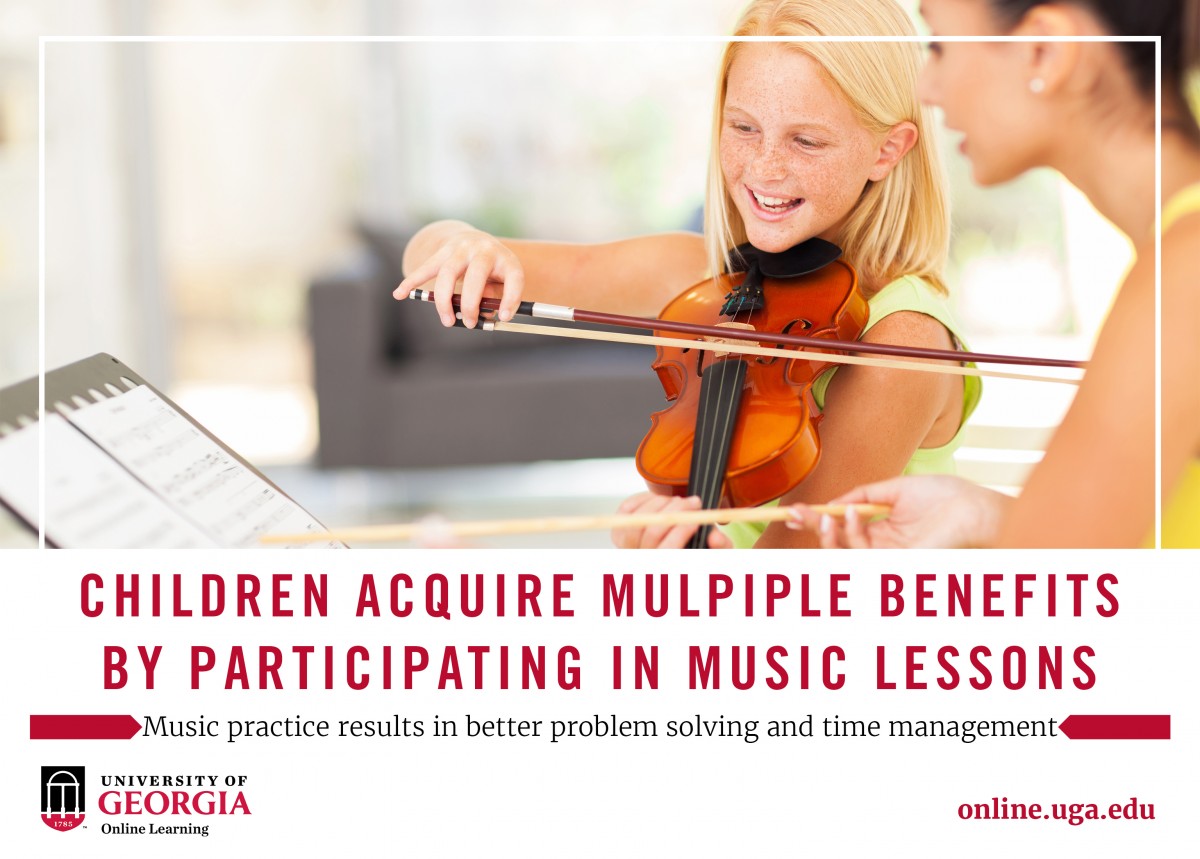Children Who Participate in Music Lessons Are Better Able to Problem Solve and Manage Their Time
Children Who Participate in Music Lessons Are Better Able to Problem Solve and Manage Their Time
For children, studying and playing music includes benefits far beyond the mere learning of playing a musical instrument, and its ripple effects result in happier, healthier, more balanced children. A July 2019 online study commissioned by the Guitar Center has found that music lessons benefit children by improving time management and problem skills among others.

The study, authorized by Brian Wesolowski, UGA online Master of Music Education professor and Stefanie Wind, from the University of Alabama, surveyed 2,323 parents across the United States. The selection criteria included parents of adolescent children ages 7-17 who were currently participating in private music lessons through either a national music store, local independent music store, music institute, or with a private independent music instructor.
This study explored the effects of supplemental music lessons on the development of children ages 7 to 17, and found that students participating in supplemental music lessons enjoy a variety of positive effects and healthy habits – including self-imposed limitation of screen time; increased problem-solving skills, time management and prioritization; increased self-awareness and social skills, and more.
“For all of the constructs, we found that parents of children who participated in music lessons for over one year perceived statistically significant higher levels of all of the behaviors compared to parents whose children participated in lessons for less than a year. This difference was substantial for all of the constructs that we measured and persisted across socioeconomic, race/ethnicity, and gender groups.”
The benefits for students ages 7-17 taking private music lessons include:
Encourage patience and resiliency in problem solving
Eighty-five percent of parents recognize that their child has a greater ability to keep working until they finish a task, even when that task is difficult.
Teach time management
Sixty-eight percent of parents believe that their child improves their ability to finish tasks on time and has a greater ability to keep track of what they need to accomplish.
Build self-awareness
Eighty-three percent of parents surveyed said that their child is able to welcome feedback on their work to help them improve in their pursuits.
Build self-motivation
Sixty percent of parents perceive that their child has a greater ability to self-monitor and limit their screen-time use because they know it is good for them.
Instill prioritization skills
Seventy-one percent of parents surveyed said their child is able to better self-monitor their screen-time because they know it gives them more time to do things that are important to them.
View the original article in Keyboard Mag, and learn more about UGA’s online Master of Music Education program.
